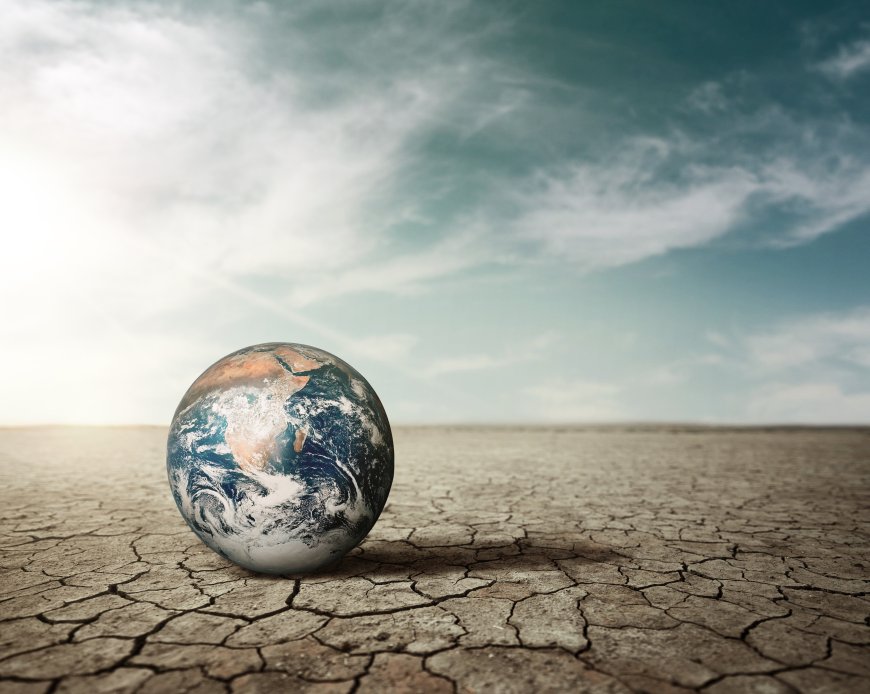Can We Stop Global Warming Before It's Too Late?
What causes global warming and how can we stop it? Learn about fossil fuels, emissions, and the urgent actions we must take.

The effects of global warming are no longer a distant threattheyre happening here and now. From record-breaking heatwaves to melting polar ice, the signs are clear. The question isnt whether global warming is real, but whether we still have time to reverse or slow its most devastating consequences.
Understanding the Reason for Global Warming
To confront global warming, we must first understand what causes it. The primary reason for global warming is the accumulation of greenhouse gases in the Earths atmospheremainly carbon dioxide (CO?), methane (CH?), and nitrous oxide (N?O). These gases trap heat and prevent it from escaping into space, a phenomenon known as the greenhouse effect.
Most of these emissions come from human activities:
-
Burning fossil fuels like coal, oil, and natural gas
-
Industrial emissions
-
Deforestation and land-use changes
-
Agricultural practices and livestock farming
-
Waste management and transportation systems
The industrial revolution kickstarted a major spike in global temperatures, and with it, an increase in extreme weather events and ecological imbalance.
Global Warming Impact: Whats at Stake?
The global warming impact is widespread and touches every aspect of lifefrom ecosystems and wildlife to human health and economies.
-
Rising Sea Levels: Melting ice caps and glaciers are causing sea levels to rise, threatening coastal cities and island nations.
-
Extreme Weather: Hurricanes, droughts, and floods are becoming more frequent and severe, driven by warmer atmospheric conditions.
-
Loss of Biodiversity: Many species are unable to adapt quickly enough to temperature changes, leading to extinction and ecosystem collapse.
-
Human Health Risks: Heatwaves, air pollution, and the spread of disease are increasing as temperatures rise.
-
Economic Disruption: Agriculture, water resources, and energy systems are under pressure, leading to food shortages and higher costs.
The climate crisis is no longer just about natureits about survival, equity, and justice.
Can It Be Stopped?
Stopping global warming completely may not be possible at this point, but slowing it downand eventually stabilizing the climateis achievable with urgent action. Scientists agree that limiting global temperature rise to 1.5C above pre-industrial levels would significantly reduce risks. The path to achieving this lies in a mix of innovation, policy change, and personal commitment.
Climate Change Solutions That Work
Heres how individuals, governments, and industries can take meaningful steps:
1. Transition to Renewable Energy
Replacing coal and gas with solar, wind, hydro, and other clean energy sources is one of the fastest ways to cut carbon emissions.
2. Improve Energy Efficiency
Smart grids, green buildings, and efficient transportation reduce unnecessary energy consumption.
3. Reforestation and Conservation
Trees absorb carbon dioxide and regulate temperatures. Protecting forests and planting new ones are essential strategies.
4. Shift to Sustainable Agriculture
Reducing food waste, embracing plant-based diets, and limiting synthetic fertilizers can dramatically lower methane and nitrous oxide emissions.
5. Invest in Green Technology
Innovations like carbon capture, electric vehicles, and climate-resilient infrastructure can shift the trajectory toward sustainability.
6. Policy and Global Cooperation
International agreements like the Paris Accord and climate policies that promote accountability are crucial to drive systemic change.
What Can You Do Today?
Even small individual actions can contribute to the collective solution:
-
Reduce, reuse, and recycle more consciously
-
Use public transport or switch to cycling or walking
-
Support eco-conscious brands and products
-
Cut down on meat and dairy consumption
-
Advocate for policy changes and support climate initiatives
Every decision you makewhether its how you commute or what you consumecan either feed into the problem or become part of the solution.
The Clock Is Ticking
Scientists warn that the next decade is crucial. Without significant global efforts, the damage could become irreversible, leading to a future defined by scarcity, displacement, and environmental collapse.
However, theres also hope. Innovations are emerging faster than ever. Awareness is growing. And more peopleespecially the younger generationsare demanding change.
Final Thoughts
Stopping global warming before its too late requires more than just good intentionsit calls for immediate, consistent, and collective action. While the task ahead is daunting, it is still within our power to change the trajectory.
Understanding the reason for global warming and recognizing the global warming impact on our lives gives us the perspective needed to act wisely. The future depends on the choices we make todaynot just as individuals, but as a global community.

































